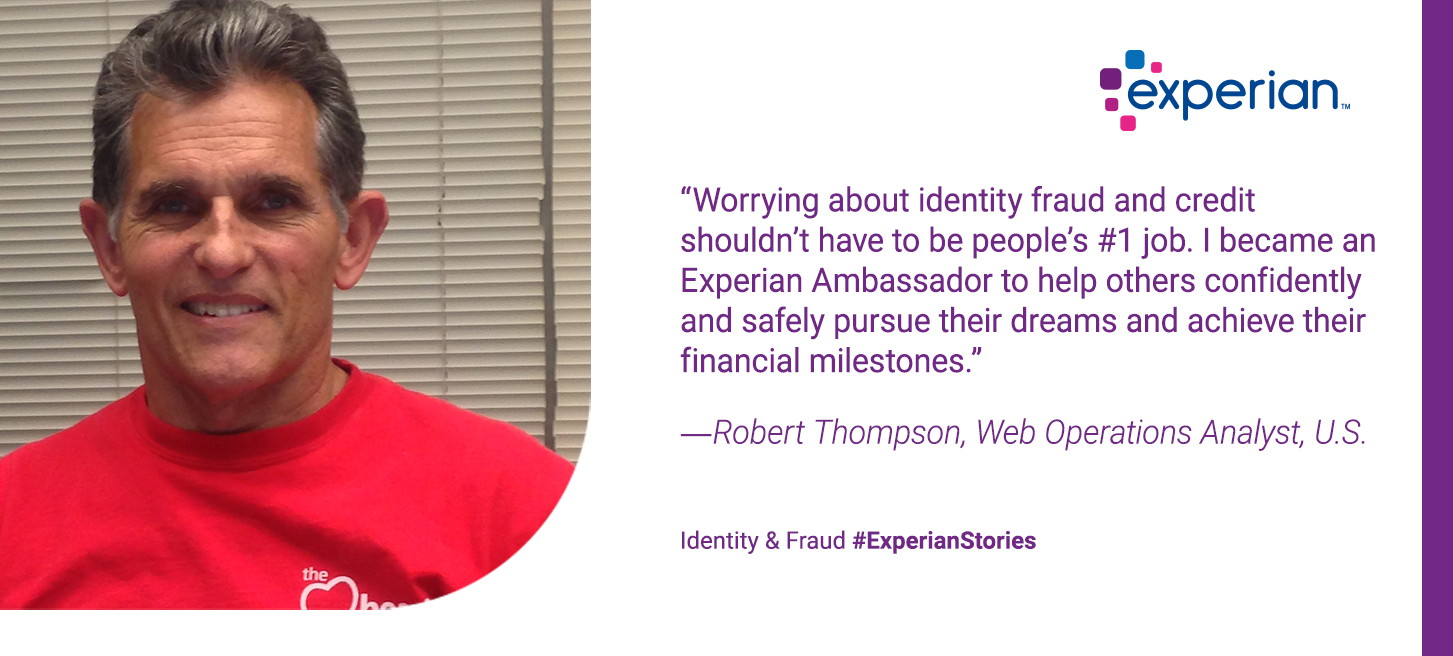
A few years back, a friend approached me at church, devastated because his identity had been stolen. His tampered identity made it difficult for him to access credit, and his small business was suffering as a result.
I’ve been working at Experian for 9 years, and I’m regularly asked by folks how to effectively build credit and keep identities secure, but this case had me stumped.
I ended up directing him to a colleague of mine who helped facilitate his recovery, but I wanted to do more. I started asking around the office how I could help not only friends and family, but anyone in the community who is concerned about their credit. That’s when I joined Experian’s Ambassadors Program.
As an Ambassador, I now regularly volunteer my time to share financial literacy presentations on credit and identify theft prevention with people in my community, from students to church groups. One presentation I gave recently really changed my perspective on the power of credit.
My son asked me to present at his company, Capital Group, in the Financial District of Los Angeles. Walking into the presentation, I assumed that their work in finance would make them credit experts. I assumed I would be presenting to a small group of people who felt confident about their credit and would ask very few questions. I couldn’t have been more wrong.
The group was two times larger than any audience I’d presented to before, and they were incredibly engaged. Many inquired about simple credit concepts: “What should I be aware of regarding my credit report? How can I make my credit better?” It dawned on me that just because someone’s in finance or business doesn’t automatically mean they understand the ins and outs of credit – they work just like you and I do, and it’s not their #1 job to worry about their credit. I realized that everyone could benefit from the information we were providing.
During that presentation, I broke the concept of credit down into manageable chunks, explaining things like the consequences of late mortgage payments, how to prevent identity fraud and a person’s credit utilization rate. I drew on the mistakes I made as a young man and the hindsight I now have as a grandfather to 19 children. I wanted to equip them with the tools they needed to adjust to all of life’s events – from divorce to sending a kid off to college – and help them make financial changes that will positively benefit them and their families.
One presentation at a time, I want to continue ensuring that families can confidently pursue their dreams and achieve financial milestones.
